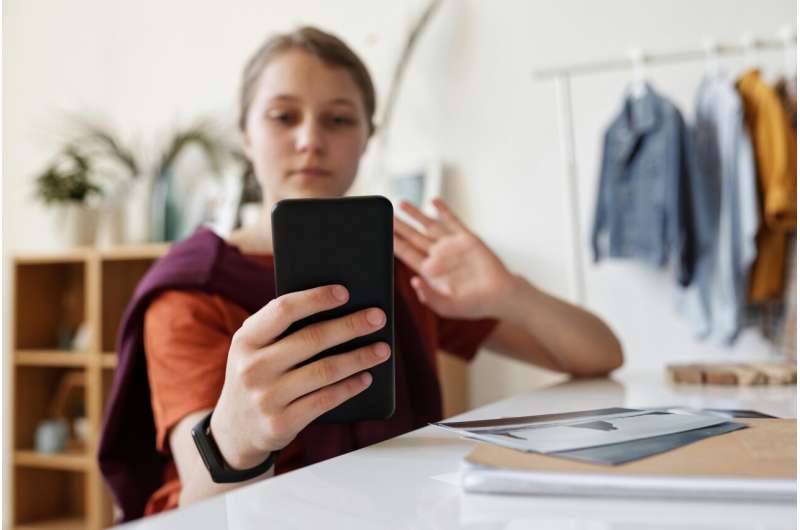This article has been reviewed according to Science X's editorial process and policies. Editors have highlighted the following attributes while ensuring the content's credibility:
fact-checked
trusted source
proofread
Research shows social media boundaries can improve teen sleep

University of Queensland research has shown intense and problematic social media use is linked to sleep difficulties in adolescents.
Associate Professor Asad Khan from UQ's School of Health and Rehabilitation Sciences analyzed the responses of 212,613 teenagers from 40 European and North American countries in the 2017-2018 Health Behaviour in School-aged Children survey. The work is published in the Journal of Adolescence.
"We looked at the relationship between intense and problematic social media use and the sleep difficulties of boys and girls aged 11 to 15," Dr. Khan said.
"Intense or frequent social media use can delay bedtimes, lead to shorter sleep duration and poor sleep quality.
"Some of these impacts are due to the exposure to bright screens, which disrupts melatonin secretion and hinders the body's ability to initiate sleep."
Problematic use is when the time spent on social media begins to interfere with other areas of life and causes emotional and cognitive excitement which interferes with the natural process of falling asleep.
Dr. Khan said girls who experienced problematic social media use had greater odds of having trouble falling asleep, which can lead to shorter sleep duration and/or poorer sleep quality, than boys.
"This suggests girls may be more vulnerable to sleep difficulties caused by social media exposure," he said.
"It highlights the importance of considering gender as a relevant factor when designing interventions.
"To ensure adolescents are getting the best sleep possible, create a sleep-friendly environment, establish a consistent bedtime routine, ensure a device-free bedroom at night and limit social media use right before bed."
The UQ study highlighted that a fear of missing out triggered by the constant availability of social media and notifications could lead to increased nighttime awakenings to check and then difficulties falling back asleep.
Dr. Khan said it was important that adolescents and their caregivers understood the impact excessive use of social media could have on overall health and well-being.
"Social media has many benefits including providing people with positive ways to connect with others from diverse backgrounds and cultures, and sharing ideas and experiences," Dr. Khan said.
"However, when social media use affects sleep health, there can be poor mental health outcomes."
More information: Asaduzzaman Khan et al, Intense and problematic social media use and sleep difficulties of adolescents in 40 countries, Journal of Adolescence (2024). DOI: 10.1002/jad.12321

















